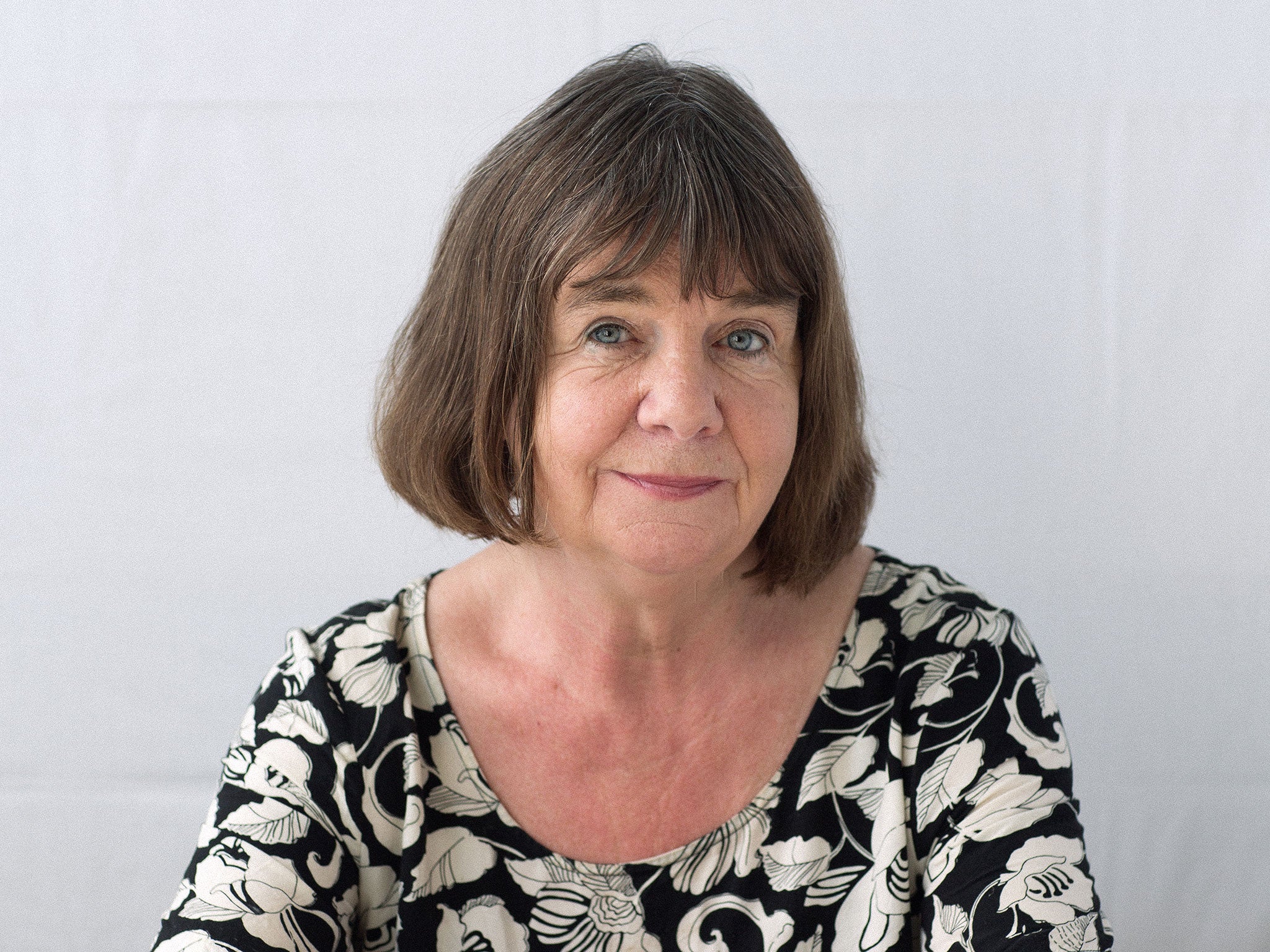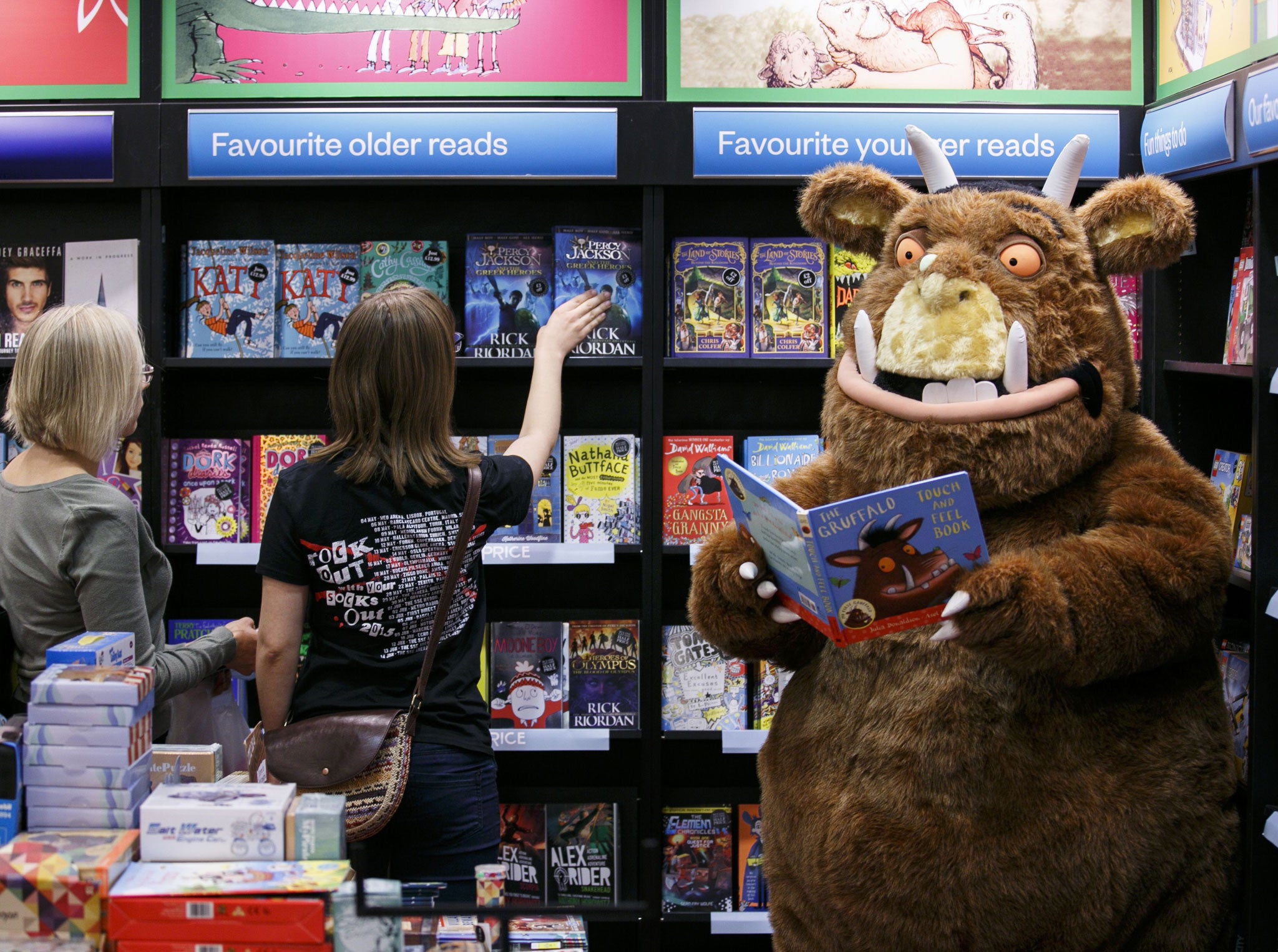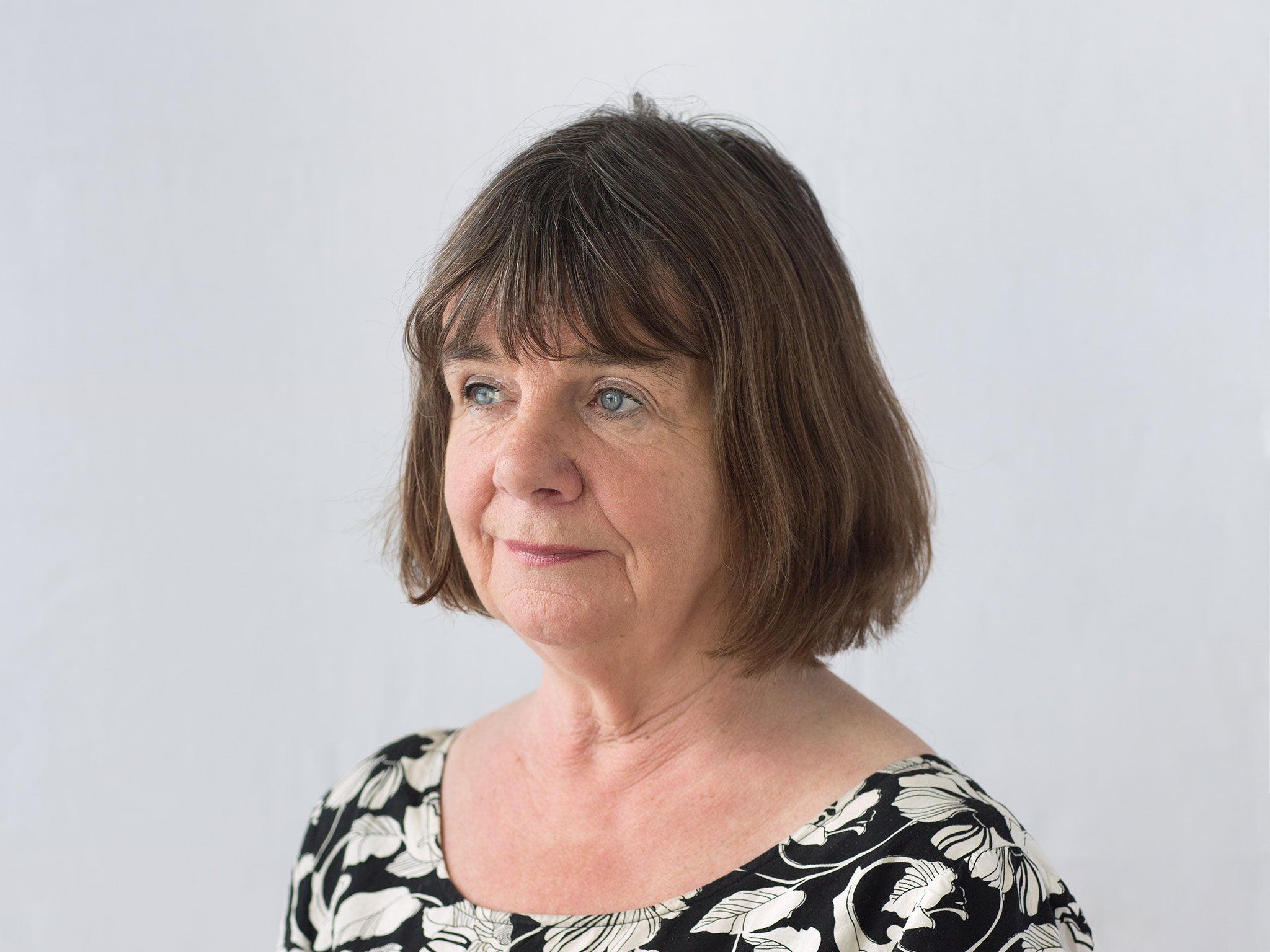Julia Donaldson interview: The Gruffalo author on how Judi Dench and busking helped her career
With sales of ‘The Gruffalo’ topping 13 million, Julia Donaldson is one of the most successful children’s authors ever. She tells John Walsh how busking in hippie-era San Francisco – and sharing a stage with Judi Dench – helped her on the path to literary stardom

Your support helps us to tell the story
From reproductive rights to climate change to Big Tech, The Independent is on the ground when the story is developing. Whether it's investigating the financials of Elon Musk's pro-Trump PAC or producing our latest documentary, 'The A Word', which shines a light on the American women fighting for reproductive rights, we know how important it is to parse out the facts from the messaging.
At such a critical moment in US history, we need reporters on the ground. Your donation allows us to keep sending journalists to speak to both sides of the story.
The Independent is trusted by Americans across the entire political spectrum. And unlike many other quality news outlets, we choose not to lock Americans out of our reporting and analysis with paywalls. We believe quality journalism should be available to everyone, paid for by those who can afford it.
Your support makes all the difference.All parents of small children know how the spirits plummet at bedtime when their charming six-year-old asks for a really boring kids' book – one by the Reverend W Awdry with his tedious trains, say, or a collection of PC nursery tales where Goldilocks isn't the least bit scared of the three bears and they dance around the room together. Parents also know the lifting of the heart that accompanies their midget progeny's choice of a Julia Donaldson book to see them off to bye-byes.
In the pages of The Gruffalo, The Highway Rat, Room on the Broom, Tabby McTat, The Snail and the Whale, The Scarecrows' Wedding and scores of others (all illustrated by Donaldson's long-time collaborator Axel Scheffler), parents and kids can be guaranteed to find (a) a story told in cheerful verse that rhymes and scans and encourages interaction; (b) characters that are brave, friendly and enterprising; (c) a landscape of town or countryside that's timeless but has modern touches, like rucksacks, cars and mobile phones; and (d) a happy ending that has a surprising twist. They're mostly a bit longer than standard children's storybooks – 15 spreads rather than 12 – and therefore more satisfying.
Ms Donaldson was a late starter. She published her first book, A Squash and a Squeeze, in 1993 when she was 45; but she's made up for it since, in spades. In the past two decades, she has published 195 books, though only 60 (only!) are available in bookshops. The others are oriented towards classroom recitations and the like. Not content with this Stakhanovite production, she also adapts books for the stage and performs them with her husband Malcolm in schools and at literary festivals. At 67, she is a marvel of energy.
When we met at her publisher's headquarters near King's Cross station, she was sitting beside an enormous pile of her most recent book, What the Ladybird Heard Next, a sequel to the bestselling What the Ladybird Heard, two works for very young readers with illustrations by Lydia Monks; both involve a barnyard of animals outsmarting a brace of robbers (who end up covered in, frankly, cowshit). Their author, a sweet-faced, pageboy-haired lady with merry blue eyes and flip-flops on her feet, surveyed the ziggurat of books she was required to sign. "I feel like the miller's daughter in Rumpelstiltskin, locked in a tower until she spins straw into gold…"
Donaldson hit the jackpot in 1999 with The Gruffalo, her third book. It's about a clever mouse who sees off the predators in the wood (fox, owl, snake) by telling them he's about to meet a scary (but made-up) Gruffalo whose favourite dinner is roasted fox/ boiled owl/ deep-fried snake. When the mouse encounters a real Gruffalo in the wood, he avoids being eaten by convincing the horned and fanged monster that he, the mouse, is the scariest dude in the wood. It was a huge hit – to date it's sold 13.5m copies and been translated into 65 languages worldwide. The most recent translations are Vietnamese and Ukrainian – and Scots dialect. The Gruffalo text is studded with words like "richt", "crivvens!", "bumbazed" and "dumfoonert".
Why Scots? "Years ago, I met this chap called James Robertson, a well-known Scottish novelist and suggested he try it. He's a brilliant poet and under his wing people have already done The Gruffalo in Dundee patois, Aberdeen dialect and Lowland Scots." What's the oddest language the book's appeared in? "Probably Faroese," she said after a think. "And Breton. My first book, A Squash and a Squeeze, went into three African languages. In the book, I used several words to suggest the room was getting smaller: poky, tiny, titchy, teeny, weeny. In an African dialect, it became "oko," "oko-oko," "oko-oko-oko," and so on – so the lines kept getting longer!"
Donaldson clearly owes a large debt for her success to the jolly illustrations of Axel Scheffler. Does the Hamburg-born Scheffler, 57, always understand her references?
"Alex – bless him. Although he speaks perfect English, in the text of The Smartest Giant in Town, the giant buys some socks with diamonds on the side; I meant those Marks & Sparks Orlon socks with a diamond pattern. When Alex's roughs came in, he'd given the giant an 18th-century look, knee britches, bulgy calves and real diamonds..."

Reviewers of children's books can often be found praising a book's uplifting moral or improving lesson. Did she have any didactic intent with her books or was she happy for them to be just lively and funny?
"I don't set out to be didactic," she said. "But they probably won't be good stories if they're just adventures. I like to think I've got good moral principles, so they're likely to come out in the writing, but I don't think to myself, 'I wish children would share more – maybe I should write a story where children share'… Although I have written some stories with 'messages'. Freddie and the Fairy is about lip-reading – the fairy gets all the wishes wrong because she can't hear properly. And The Paper Dolls is about bereavement and coming to terms with loss."
Does The Gruffalo have a moral? Apart from: lie through your teeth when you're in a tight corner? "Yes, I have been criticised for being immoral," said Ms Donaldson, smiling. "For saying that you should tell lies to scare predators off. But really it's a story about using brains over brawn. Luckily all the other animals are very stupid, or it wouldn't work."
I told her how much I enjoyed her stories' endings. At the conclusion of The Snail and the Whale, the snail returns home to his Scottish rock to greet his snaily family – then promptly sets off on another whale-borne voyage, taking them all with him. In Tabby McTat, a busker's cat is torn between staying with the busker or going home to his wife; the dilemma is resolved by having their son take over the busker's cat role. "The publishers were really bothered about that," said Donaldson. "They said, 'Can't it just be about two cats? Does it have to have a human being involved?' I said, 'It's a story about being torn. Children might be torn if their parents get divorced and they have to choose between Mum and Dad.'"
Donaldson's own family life sounds amazingly wholesome. Born Julia Catherine Shields in 1948, she grew up near Hampstead Heath in a crowded house. It featured one of almost everything: mother, father, sister, aunt, uncle, grandma and cat (Geoffrey). They lived on three floors, and were a musical family. Her father, a lecturer at the Maudsley Hospital, played the cello in string quartets; her mother sang with the local choral society. The family was immersed in music. "Classical stuff, not novelty songs or rock'n'roll," said Donaldson. "My sister and I learned piano and I was in a children's opera group. I was quite a square child until I was 15 and developed a crush on Mick Jagger."
On family holidays in Wiltshire, at Grittleton School House near Chippenham, where her father played the cello at a summer school for chamber music, Donaldson was inspired by "a woman who took a Gilbert and Sullivan song and changed the lyrics to the names of the people attending, to make a little satirical sketch." The idea appealed; it was something that came easily to her.
At Christmas, disdaining the lure of TV, the family would entertain themselves and Donaldson wrote "a musical version of Little Red Riding Hood. My sister Mary played Little Red, I played her mother, my father was the Woodcutter and mother was the wolf. She had to sing: 'What's your favourite Christmas dish?/ Some like chicken, some like fish./ But if I had my Christmas wish, / I'd choooooose a little girl.' I wrote the tunes as well. I was about 12."
At the same age, remarkably, she trod the boards in London at the Old Vic theatre, understudy to the fairies in A Midsummer Night's Dream. Listening to Shakespeare's dreamy text from the wings each evening turned her on to the dazzle of language. "I just loved the sonorous rhythms: 'The iron tongue of midnight hath tolled twelve. Fairies away!'"
She was equally enraptured by the actors, who included a young Judi Dench. "She and Barbara Leigh-Hunt were playing Hermia and Helena. I remember Judi saying to Barbara [during a matinee] 'It's the Boat Race! Let's get this scene over quickly, and watch it in my dressing-room.' A year later, she did a poetry recital at Kenwood House and I went along with my mother. She was sitting on a little dais on stage as people came in, and I thought she waved to me. My mother said, 'Don't be ridiculous, she probably knows half the people here.' I went up afterwards and said, 'Hello, I don't know if you remember me…' and she said, 'Yes of course – didn't you see me waving at you?'" Donaldson was clearly moved by the memory of this quasi-royal endorsement.
People have this idea that children are a peculiar race who like different things to grown-ups
Her grandmother introduced her to the nonsense poetry of Edward Lear, "whom I loved for his brilliant rhymes, and the slightly plaintive note in his poems: 'Far and few, far and few, are the lands where the Jumblies live/Their heads are green, and their hands are blue,/And they went to sea in a sieve.'"
At Bristol University, where she studied French and German, Donaldson plunged into the late-Sixties zeitgeist by learning the guitar and taking up busking. She and her friends Maureen Purkis and Colin Sell (yes, the chap who plays piano on Radio 4's I'm Sorry I Haven't a Clue) played and sang in pubs during rag week. When they went to live in Paris for six months in 1969 to improve their French, Sell's roommate, an ebullient guitarist called Malcolm Donaldson, came too.
"Maureen and I between us could do only 'Blowin' in the Wind', 'Plaisir d'Amour,' 'Greensleeves,' and two other songs," she recalls. "When Malcolm arrived, we had a whole repertoire." The quartet performed in Paris and Avignon, slept in hostels, fields and campsites. Julia and Malcolm began falling for each other. "I'd left a boyfriend back at university, and when we split up I cried on Malcolm's shoulder, and we got together. It's usually a recipe for disaster, but we've been married for 43 years."
Emboldened by success, they busked in Seattle and San Francisco, when the hippie era was still perfuming the air. "Our best hits were 'Something Stupid,' and Beatles songs, and numbers from Salad Days and Hair," said Donaldson. "But it wasn't easy in America. We'd try to perform in restaurants and they'd ask, 'Are you with the Musicians' Union?' or say, 'We don't have an entertainment licence.'"
Did they move around in a haze of drugs? "No, no," said Donaldson severely. "People talk about that time as if everyone was smoking pot, and they weren't really. I remember, in France, this American who came up and said, 'Hey, d'you know if there's any grass around here?' I said, 'Yes, there's very nice park about half a mile away…' I didn't have a clue. And the people who smoked were such a nuisance. You'd be in a play with them and they'd be giggling all the time. They seemed pathetic. There was so much going on in life; I wanted to stay wide awake for it all."

Back home in the 1970s, married to Malcolm, living in Brighton and raising three children, she wrote umpteen songs for BBC children's television shows such as Play Away, sang in folk clubs and, inspired by David Illingworth of the Bristol Street Theatre, ran a drama workshop for deprived children, making up little plays with a few props and costumes. She also taught English for two years. Did it show her a nasty side of children? "I had a dreadful time doing teaching practice with classes I couldn't control. But my job was in a posh girls' school where they thought I was the bees' knees, because the other teachers were so ancient and old-fashioned. Even if I organised a debate, they thought how avant-garde I was."
The family moved to Bristol, then Glasgow, where "I wasn't aware, at first, of the resentment of Scottish people for the south." During the 1990 World Cup, she was also shocked to see, when Scotland was knocked out in the first round, Scottish supporters thereafter cheering for the England squad's opponents. But she lived in Scotland for 25 years, before the family moved to the town of Steyning in West Sussex.
Donaldson went on writing songs for children's TV. Then in 1991, the publishers Methuen rang out of the blue to ask if a 16-year-old song called "A Squash and a Squeeze" – about a little old lady who complains that her cottage is too crowded – might be made into a children's book. She agreed, they put her in touch with Scheffler, and the rest is history. The shelf of her published works is a squash and a squeeze indeed.
In 2011 she was made Children's Laureate, and embarked on two years of high activity. She created Plays to Read, a series of 60 mini-dramas for six characters to read in class, and an interactive website called PictureBookPlays to encourage children to turn favourite picture books into classroom plays. She also lobbied the government over the closure of UK libraries. "I met Ed Vaizey – his nickname was 'E Vaiz-ive' you know. He just denied there were crisis cuts in libraries. He said it was up to local councils to take action. He never accepted there was a case for the government to intervene directly."
Was she shocked by a new survey of what parents think makes the perfect bedtime story? It should (apparently) feature a dragon, a wizard and a fairy, revolve around a mythical castle, and have a moment of peril before a happy ending. Not quite Donaldson fare, is it?
"I don't think parents really think anything of the sort," she said shortly. "They were probably asked, 'Which of the following things would you like to have in a story?' followed by some suggestions. I really have it in for surveys."
So what's her own blueprint for a bedtime story? "The best thing about picture books is that they can be anything you like," said Donaldson. "They can be a joke, or help you come to terms with the death of a grandparent or a pet, they can revel in language or use no words at all. In that sense, there's no blueprint. But people have this idea that children are a peculiar race who like things that are different from what grown-ups like. Everyone likes a good, exciting story with a character who's out of their comfort zone, and they like an underdog who wins in the end, and a happy ending with a twist, so you're not sure how it's all going to be resolved. Everyone." Indeed. As several million parents all over the world know, from Fulham to the Faroe Islands.
Join our commenting forum
Join thought-provoking conversations, follow other Independent readers and see their replies
Comments